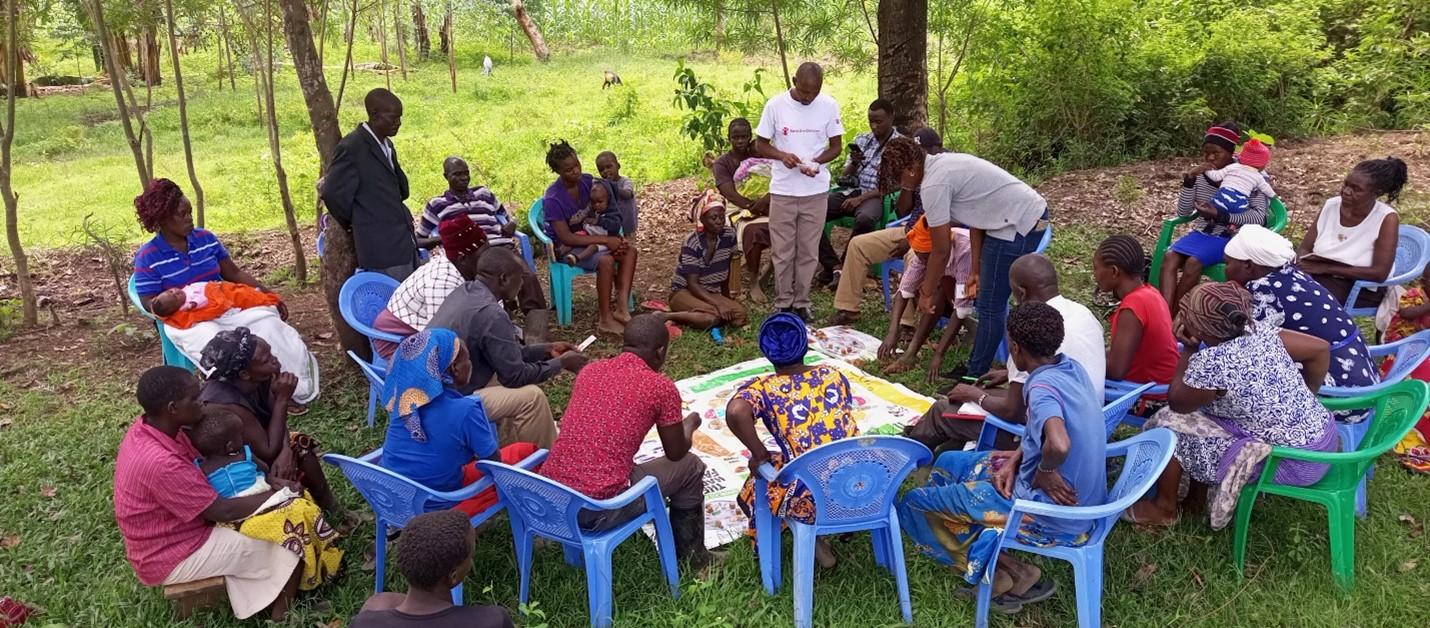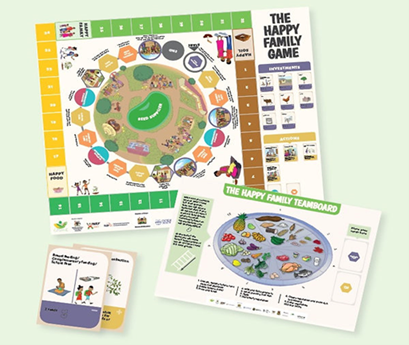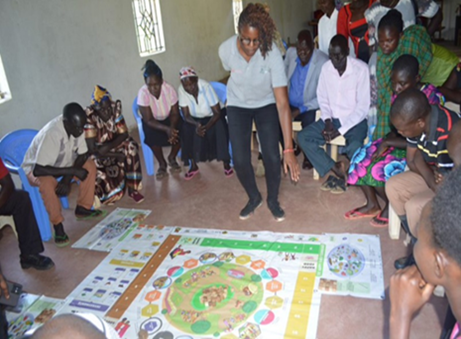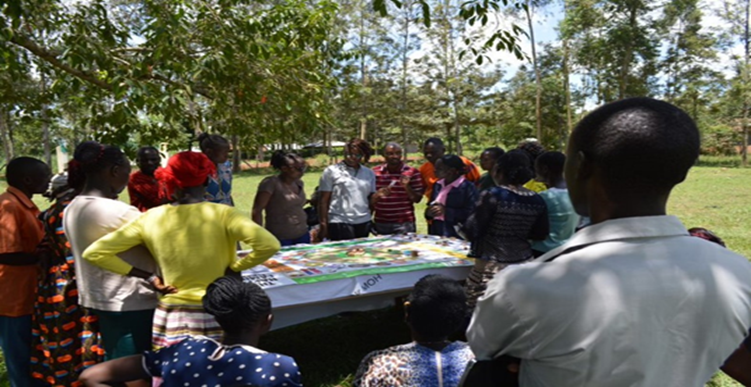Blog Agri-Nutrition Learning with the Happy Family Board Game

It is said that adults learn best by practice. Practical learning coupled with real life experiences whilst playing resonates well with learners across all age groups and has long lasting impact.
The Happy Family Boardgame is a game developed for farming households that is meant to help couples improve their joint decision-making, planning, farming practices and nutrition knowledge to maximize on the resources available to them hence become a happy family. The game was developed in the Education and Training for Sustainable Agriculture and Nutrition in East Africa (EaTSANE) project, which is part of the LEAP Agricultural program implemented in Teso South Sub-County, Kenya, and Kapchorwa District in Uganda.

The Happy Family Board Game

Participants from Kiriko C.U trying out the game, Teso North, Busia County, Kenya.
Photo credit: Save the Children, Bungoma office
The goal of the board game is to show the interconnectedness of decisions in agriculture, nutrition, and value chains in a playful way. The board game was tried out in five out of the 10 intervention community units in Teso North and South sub counties in Busia County which we target in our project on “Improving dietary quality and livelihoods using farm and wild biodiversity through an integrated community-based approach in Busia and Turkana County, Kenya.” The latter project is implemented with financial support from the German Federal Ministry for Economic Cooperation and Development (BMZ) through the Deutsche Gesellschaft für Internationale Zusammenarbeit (GIZ) and the Fund for International Agricultural Research (FIA).
As a requirement of the game, four teams comprising of two members each were formed and assigned a family team board. Each team was assumed to be members of the same household and were instructed to keep track of their actions throughout the game on their family board. Actions undertaken during the game were guided by the steps highlighted on the scoreboard. Through the use of the investment and action cards provided, participants jointly decide on the nutrition and or agricultural investments and actions to undertake throughout the game. The teams paid for each selected investment using seeds (used as currency) but at the end of the game, they gathered Happy Points. For each action card picked, teams earned seeds and/or Happy Points. At the end of the game, the team with the most points were crowned winners. The game took approximately one and a half hours and was led by three facilitators who are experts in nutrition and agriculture.

Participants from Kaliwa C.U trying out the game; Teso South, Busia County, Kenya.
Photo credit: Save the Children, Bungoma office
The facilitators explained the importance of all the investments and joint actions undertaken by the teams. The game enhances the understanding of participants on the linkages in the ecosystem from the environment, agricultural practices, quality of food, household decision making and ultimately the nutrition and health of consumers. They learnt that a happy family stems from consuming a diversified diets which emanate from healthy soils. Additionally, they were able to appreciate the role of planning and joint decision making in attaining better, healthier and diverse diets.
The participants enjoyed learning through the game that they hardly noticed it took one and a quarter hour to complete it. Through the disaster/opportunity cards, participants were able to relate how their actions influenced the wellbeing of their families. The Action cards are limited to few different activities and can easily be adjusted to other projects’ objectives. Additional activities to include in the action cards may be sun drying vegetables as a family, setting up a kitchen garden as a family, husband and wife building an improved stove together to save energy and be more environmentally friendly among other agriculture-nutrition related activities relevant to the project being implemented. Building on the experience in playing the board game, the Alliance will elaborate further documents and guidance about the game together with the EaTSANE project team. Feel free to contact us for more information about the game and how it can be used. Readily available games can be borrowed from the Alliance Nairobi office.
